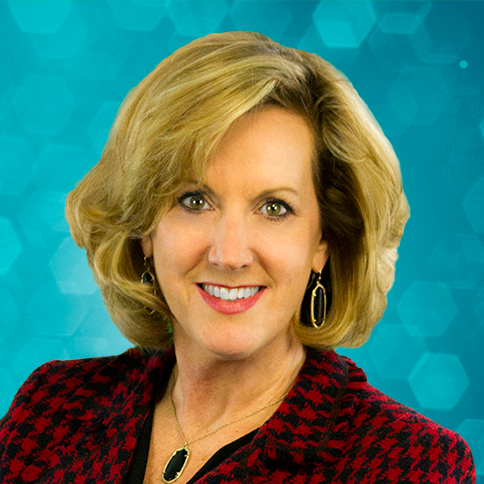
Robin Johnston is Senior Vice President of Corporate Development at NFP where she primarily leads the Benefits Partners producer group oversight, including the selection and recruiting of new member firms.
Here is what Robin had to say when we asked her about time management:
GenHERation®: How do you prioritize tasks?
Robin Johnston: The Eisenhower matrix is a great tool to use for prioritizing tasks. This matrix uses four quadrants (I-IV) to help you prioritize tasks based on urgency and importance. Quadrant I houses tasks that are important and urgent—complete these tasks now! Quadrant II is for tasks that are important yet not urgent. You should schedule a time to complete these tasks and address them when that time comes. Quadrant III describes tasks that are not important, but urgent. It is best to delegate these tasks. Quadrant IV represents tasks that are not important and not urgent. Tasks that fall here are ones that aren’t priorities, such as watching a video on social media. By keeping this evaluation matrix top of mind, you can easily navigate a busy schedule and sort through your day.
GenHERation®: What are three ways you can limit distractions?
Johnston: Distractions come at us all day every day. A colleague walks into your office or your device dings. Most of us accept these distractions. One thing I have found helpful in dealing with distractions at work is reminding myself why I am there. When the day gets hectic, I come back to my why, which helps me get focused. Another way to limit distractions is to do something so simple—be present. Whether you’re talking to a peer or a manager, be in the moment. Don’t think about the 10 things you have to do after the conversation, invest your energy in the moment. A final way I manage distractions is through batching. With batching, you set aside a certain amount of time for specific tasks and do everything you can to complete these tasks in this time frame. Don’t cheat yourself!
GenHERation®: How can you ensure that a project moves along when you are working as a member of a team?
Johnston: You have to be a team player first and foremost. Don’t be the “I got my piece done, so I’m no longer invested in this project” person. At the very beginning of a project, let people understand what their roles are and that their roles matter. For example, clarify who is conducting the research that is the basis for the entire project. As the project progresses, continue to have open communication lines. Articulate deadlines and expectations. Finally, offer your assistance for people who are struggling.
GenHERation®: What advice do you have for when you are expected to report to several managers?
Johnston: This one is tough. A thought would be to do a stewardship report of sorts. If you have two managers, identify how much time you are spending working for each manager. Your communication with your managers should be somewhat proportional to the amount of work you are doing for them. Ask each manager what their expectations are for you and how frequently you should connect. Let each manager know what your time split is. Open conversation can be informative and helpful in this situation.
GenHERation®: How do you work to complete a project when you have a deadline versus when you do not have a deadline?
Johnston: Whether you are a manager or a non-manager this is relevant. A lot of us have a tendency to procrastinate. It doesn’t always pay! If you have a deadline, manage it. Set reminders, schedule meetings, or batch your schedule to stay on track. If you don’t have a deadline, create one. A project without a deadline is dangerous because it has a tendency to be put off.
GenHERation®: What are three strategies you have for managing emails?
Johnston: I can relate to this question personally. I had a colleague who was shocked when I had 20,000 emails sitting in my inbox! I have definitely found strategies to keep my inbox more in check. When it comes to emails, you should set up folders and rules in your inbox. Folders allow you to sort and store items by category. Rules dictate what happens when a message enters your inbox. By using folders and rules, you create a more organized and efficient inbox. Once your folders and rules are in place, you should set formal times to go through your folders—don’t let emails control your day! Address emails now if they are important and urgent, or if you can address a message in less than two minutes. Otherwise, flag it and schedule calendar time to address it.
GenHERation®: How do you create work-life balance?
Johnston: There really is no balance, it’s more harmony today. You have to manage all of your priorities, both professional and personal, while staying happy, healthy, and fulfilled. This is easier said than done. My best advice is to take care of yourself. Do your best at what you can. Make time for doing things you love in addition to work. If you aren’t balanced or in the right mindset, you can’t be helpful to others.
Robin Johnston is Senior Vice President of Corporate Development at NFP where she primarily leads the Benefits Partners producer group oversight, including the selection and recruiting of new member firms. Her recruiting efforts include identifying a firm’s compatibility and fit into the larger NFP ecosystem, including both the PartnersFinancial and RPAG member firm candidates. As many of NFP’s benefit acquisitions come from the Benefits Partners distribution, Robin works closely with the M&A team to identify and cultivate potential acquisitions. Robin has invested over 15 years developing deep rooted relationships throughout the NFP distribution and is a natural go-to connection point for much of the enterprise collaboration and adjacent revenue opportunity efforts. As the “go-to” for so many, Robin is a natural and integral part of the corporate development team. Before joining NFP, Robin led marketing and sales for a multidiscipline, independent regional agency for over 15 years, which was one of the first PartnersFinancial member firms. This field production experience brings a unique, comprehensive perspective to her many facets at NFP. Robin received a Bachelor of Business Administration from the University of Texas at Austin and holds a life and health license, as well as Series 7 and 63 licenses in all 50 states.



Comments (0)